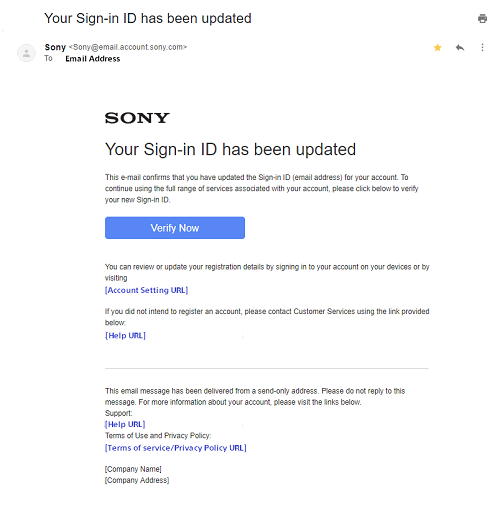Topic sony corp v universal city studios: Explore the groundbreaking case of Sony Corp v Universal City Studios, a pivotal moment in copyright law history that shaped how we consume and share media. Discover its impact on technology and entertainment.
Table of Content
What was the outcome of the Sony Corp v Universal City Studios case?
The outcome of the Sony Corp v Universal City Studios case was:
- The court ruled in favor of Sony Corp.
- The court determined that if a device is sold for a legitimate purpose and has a substantial non-infringing use, its manufacturer will not be held liable for copyright infringement.
- This case established the concept of \"substantial non-infringing use\" as a defense against copyright infringement claims.
- Universal City Studios had sued Sony for copyright infringement, claiming that Sony\'s Betamax devices allowed consumers to record copyrighted works without authorization.
- However, the court found that the Betamax had significant non-infringing uses, such as time-shifting television shows for personal use.
- The ruling had a profound impact on the future of technology and copyright law, contributing to the development of the fair use doctrine and shaping the legal framework for technologies like VCRs, DVRs, and other recording devices.
READ MORE:
Overview
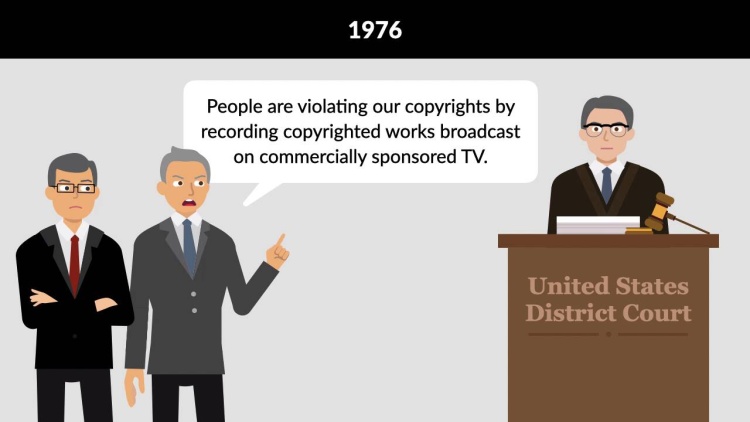
Background
In the 1970s, the Sony Corporation introduced the Betamax videocassette recorder (VCR), a groundbreaking technology that allowed users to record television programs for personal use. Universal City Studios, the film and television studio behind Universal Pictures, filed a lawsuit against Sony in 1976.
Universal City Studios argued that the Betamax VCR enabled copyright infringement by allowing users to make unauthorized copies of their copyrighted television content. They contended that Sony should be held liable for this potential infringement.
The case proceeded through the legal system and eventually reached the Supreme Court of the United States. The outcome of this case would have far-reaching implications for copyright law, technology, and the entertainment industry as a whole.
At the heart of the case was the debate over whether time-shifting (recording television shows to watch them later) constituted fair use or copyright infringement. The decision would set a precedent for the relationship between technology, copyright, and the rights of consumers.

Legal Issues
The \"Sony Corp v Universal City Studios\" case raised several critical legal issues that had far-reaching implications for copyright law and technology. Some of the key legal questions included:
- Is the sale of the Betamax VCR by Sony considered contributory copyright infringement?
- Does the act of recording copyrighted television programs for personal use constitute fair use under copyright law?
- Should Sony be held responsible for the potential copyright infringement by individuals who use the Betamax to record copyrighted content?
The case required a careful examination of the balance between the rights of copyright holders and the rights of consumers to use technology for personal, non-commercial purposes. It ultimately led to a landmark decision by the Supreme Court of the United States that had a significant impact on copyright law and the development of new technologies.
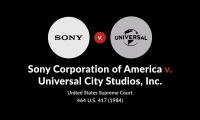
Court Decision
In 1984, the Supreme Court of the United States rendered a landmark decision in the case of Sony Corp v Universal City Studios. The Court ruled in favor of Sony, stating that the sale of the Betamax VCR did not constitute contributory copyright infringement.
The Court\"s decision hinged on several key factors:
- Time-Shifting: The Court determined that the practice of recording television programs for personal, non-commercial use (time-shifting) was considered fair use under copyright law. This meant that individuals could record shows to watch them at a later time without infringing on copyright.
- Lack of Direct Infringement: The Court found that Sony could not be held responsible for the potential copyright infringement by users of the Betamax VCR. They noted that Sony\"s primary purpose in manufacturing and selling the VCR was not to facilitate copyright infringement.
The Court\"s decision had significant implications for the development of technology and copyright law. It established the concept of fair use in the context of home recording and provided a precedent for the use of new technologies that may have the potential for copyright infringement but also serve legitimate purposes.
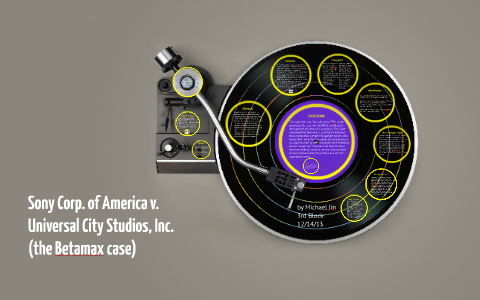
_HOOK_
Impact
The \"Sony Corp v Universal City Studios\" case had a profound and lasting impact on both copyright law and the technology industry. Here are some key aspects of its influence:
- Establishment of Fair Use: The Court\"s decision established the concept of fair use in the context of personal, non-commercial copying. It recognized that individuals could record copyrighted content for their own use without violating copyright law, setting a precedent for future fair use cases.
- Technology Development: The ruling provided legal clarity for the development and marketing of technologies that could potentially be used for copyright infringement but also had legitimate uses. This encouraged innovation in the technology sector.
- Shift in Entertainment: The case paved the way for the home entertainment industry, including the sale and rental of movies on VHS tapes and later on DVDs. It also influenced the development of digital media formats and streaming services.
- Legal Precedent: The Court\"s decision became a crucial precedent in copyright law, guiding future cases involving the intersection of technology, copyright, and consumer rights.
- Consumer Rights: The ruling protected consumers\" rights to use technology for personal purposes, contributing to the accessibility of media and information in homes.
Overall, the \"Sony Corp v Universal City Studios\" case represented a delicate balance between copyright protection and the advancement of technology, leaving a lasting legacy in how we consume, share, and interact with media and content.

Conclusion
In the annals of copyright history, the \"Sony Corp v Universal City Studios\" case remains a pivotal moment. It upheld consumer rights, spurred innovation, and forever transformed how we engage with technology and media.
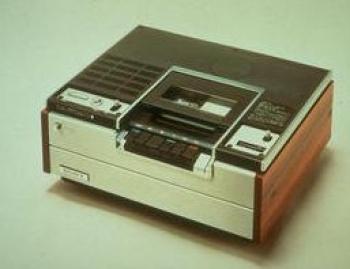
Sony Corporation of America v. Universal City Studios, Inc. Case Brief Summary
Copyright: Discover the importance of copyright protection and how it can safeguard your creative works from infringement. Learn about the benefits and implications of copyright law in this informative and empowering video.
Sony v Universal City Studios 1984
Lawsuit: Delve into riveting real-life legal battles and gain insights into the intricacies of courtroom drama. Unravel the fascinating world of lawsuits as you witness intense debates, compelling evidence, and the pursuit of justice in this captivating video.





